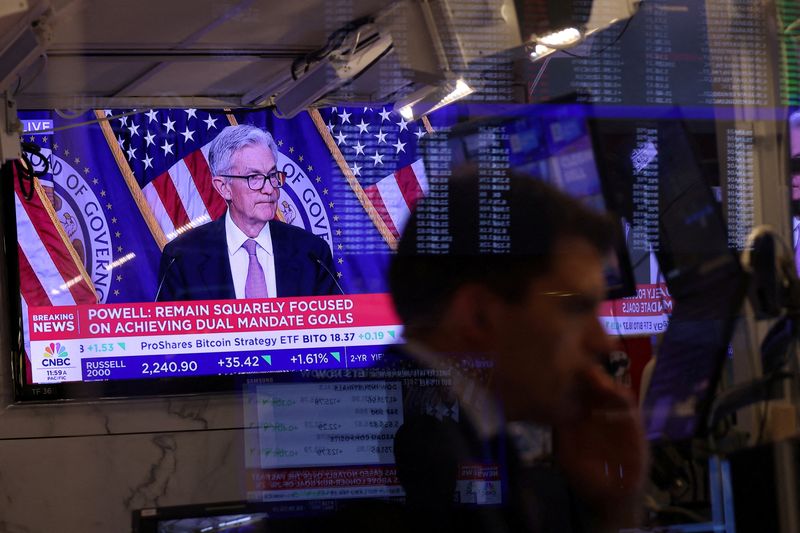US borrowers to get quick relief as Fed cuts rates, analysts say
2024.09.18 16:31
By Nupur Anand and Saeed Azhar
NEW YORK (Reuters) – U.S. consumers are expected to get a quick reprieve on borrowing costs from banks after the Federal Reserve cut interest rates on Wednesday for the first time in more than four years, analysts said.
Lenders tightened lending standards last year as the commercial real estate market deteriorated and investors became broadly concerned about the potential for a U.S. recession. But banks could switch gears quickly after the Fed cut rates by half of a percentage point.
“Borrowing rates are more competitive than deposit rates and they are more likely to move with the market,” said Jay Hatfield, CEO of Infrastructure Capital Advisors. “We would expect both deposit and lending rates to come down pretty quickly,” as banks compete to attract deposits and seek profits from loans, he said.
U.S. lenders’ net charge-off rates for credit cards, or the amount banks did not expect to collect on the loans, rose to 4.82% in the second quarter, the highest since 2011.
But banking executives have noted that U.S. consumers’ late payments on credit cards and other loans are starting to level off after rising earlier in the year. “Today’s reduction in interest rates could ultimately allow for consumers to see lower monthly payments” or refinance their higher-interest debt, said Michele Raneri, head of U.S. research and consulting at credit reporting bureau TransUnion (NYSE:) in Chicago.
“Lenders have begun exercising more discretion when it comes to whom they are extending credit, preferring less-risky borrowers,” she said. “It remains to be seen whether this interest-rate reduction will see lenders once again offering credit to a larger segment of the consumer population.”
Silvio Tavares, CEO of VantageScore, a credit-score modeling company, called the cut “a strong and positive step.” But its effects will be gradual, with more cuts needed to help everyday finances, he added.
“While consumers overall remain credit-healthy, many are facing mounting financial challenges including rising delinquency rates and the highest credit-card balances we’ve seen in more than four years,” Tavares said.
Banks are positioned for a variety of interest-rate scenarios and are unlikely to take on greater interest-rate risks after the Fed move, Fitch Ratings analysts wrote in a note.
An of bank stocks rose 0.3% on Wednesday afternoon.

“The market’s assuming that banks are going to be performing well into the future, and that rate cuts are going to be helping them,” said David Wagner, a portfolio manager at Aptus Capital Advisors, which owns bank shares.
“But I’m kind of skeptical that the amount of loan growth that’s going to come to the market is going to fully subsidize the lowering of the net interest income,” Wagner said, referring to the difference between what banks make on loans and pay out on deposits.








